

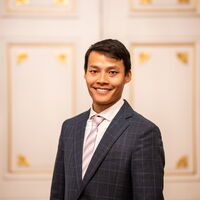
Yu-Wei Chen (Taiwan)
Yu-Wei Chen is a Guest Scientist at the Center for Global Health at Charité in Berlin. As a lawyer by training, he has several years of research experience in health law and policy spanning Taiwan and the US. His Fellowship research explores the EU’s pharmaceutical procurement of critical medicines from the perspectives of resilience and equity, a topic of growing importance in light of recent supply shortages and global competition.
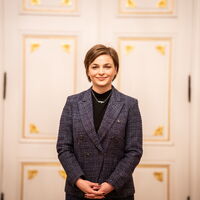
Anca Agachi (Romania)
Anca Agachi is a Defence Policy Analyst at RAND, a U.S. based research organisation. Her areas of expertise include transatlantic security and defence, Alliances, global governance, the security implications of emerging technologies, and strategic foresight. Anca is driven by a desire to understand the future of conflict and security, and devise policy recommendations that can help the transatlantic community respond to change. She previously worked for the Atlantic Council, European Defence Agency, and as a UN Youth Delegate of Romania, and holds a Masters of International Affairs from Columbia University. She is also a Nonresident Fellow with the Atlantic Council and a Junior Associate Fellow with the NATO Defense College. She is originally from Bucharest, Romania.
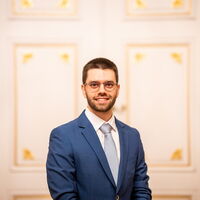
Eduardo Brito (Portugal)
Eduardo Brito is a Security Engineer and Industrial PhD Candidate at Cybernetica AS and the University of Tartu, specialising in trustworthy digital infrastructures, applied cryptography, and privacy-enhancing technologies. He contributes to major European and International research initiatives on data governance, digital sovereignty, and verifiable trust systems, including work within the Estonian Centers of Excellence in AI and Internet Voting. His research has been published in leading scientific venues and recognised by the Estonian Research Council, the St. Gallen Symposium Global Essay Competition, and the European Commission’s Innovation Radar. As a Charlemagne Prize Fellow 2025/26, his project “Proof-of-Location for European Digital Sovereignty” investigates how verifiable location provenance can reinforce transparency, accountability, and democratic resilience across Europe.

Sophia Beiter (Germany)
Sophia Beiter, MA, is a Research Associate at the think tank Institute for the Danube Region and Central Europe (IDM) in Vienna. She works on topics related to EU enlargement, democracy, and citizen participation in the EU and was responsible for the EU project ‘Towards Democratic and Inclusive Europe: EP Elections and Active Citizen Participation and Contribution‘ (EUact2). Sophia has published work on transnational lists and the Spitzenkandidaten process in EU elections, as well as on the topic of Schengen. Previously, she studied and worked at the Institute for Slavic Studies at the University of Vienna. In 2024/25, Sophia will be a Fellow of the Charlemagne Prize Academy. In her project, "A Comparative Approach to Different Models of EU Integration: How to Achieve a Citizen-Based and Reformed EU Enlargement Strategy?", she aims to develop a new, more effective, and citizen-oriented enlargement policy. This strategy will be both realistic and beneficial for accession candidates and EU members, incorporating the perspectives of citizens. By doing so, the project will not only contribute to a comprehensive proposal for EU reform but also promote public awareness of the importance of EU enlargement.

Dr Ali Abdelshafy (Egypt/Germany)
Dr. Ali Abdelshafy is an Assistant Professor in Future Industrial Systems at TU Delft. He received his PhD from RWTH Aachen University and holds a Master’s degree in Resource and Environmental Management, as well as a B.Sc. in Petroleum Engineering. Before joining TU Delft, he led the research group “Climate-Neutral Industries” at the Chair of Operations Management at RWTH Aachen University. He was also a visiting fellow at the Oxford Institute for Energy Studies and the University of Cambridge. He has worked on several energy transition and decarbonization projects in the industrial sector and academia. His main research areas are climate-neutral systems, energy-intensive industries, sustainable supply chains, energy transition and structural changes. During his Charlemagne Prize Fellowship, Ali will investigate the EU mission of achieving 100 climate-neutral cities by 2030. The research study will evaluate the effectiveness of different enablers and assess their impacts on the city systems in order to derive a wide range of blueprints that fit a wide range of urban contexts in the EU. He will also explore the delicate balance between sustainability and prosperity, along with the key factors that influence this relationship, in order to optimize both and accomplish the mission efficiently.
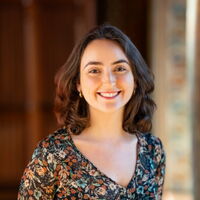
Irene Perez Beltran (Spain)
Irene Perez Beltran holds a degree in International Relations from King‘s College London and recently graduated with a Master‘s in Environmental Policy from Sciences Po Paris. She has prior research experience in international biodiversity governance, the science-policy interface for agrifood systems modeling, and food insecurity. She currently works as a consultant for the UNESCO‘s Partnerships Division. Through her research question, “How can emerging spaces of dialogue with farmers facilitate the implementation of the EU Nature Restoration Law?”, Irene will engage directly with farmers in Spain and France, linking grassroots-level initiatives with EU agriculture and biodiversity policy.
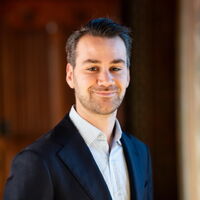
Dr Toon van Overbeke (Belgium)
Dr Toon Van Overbeke is an assistant professor at Maastricht University in the Faculty of Arts and Social Sciences, where he specialises in the intersection of European studies and the political economy of digital and climate transitions. He completed his BA and MA in history at KU Leuven and earned his MSc and PhD in Political Economy from the London School of Economics and Political Science (LSE), where he remains a visiting fellow. Toon‘s dissertation studied why market societies use innovative technologies, such as automation, so differently and how these developments influence trust and political attitudes among European citizens. During his PhD, he was a visiting scholar at KU Leuven and the Vrije Universiteit Brussel in Belgium.

Elena Bascone (Italy)
Elena Bascone is a public policy professional, focusing on future economic and political challenges. Her research spans economic, security, and tech policy. Notably, her master‘s thesis in 2020 developed a model assessing the effectiveness of sanctions, applied to the Council of Europe-Russia dispute. She subsequently explored energy policy (Nord Stream 2 in 2021) and budget policy (EU Commission in 2022). Passionate about computer programming, she partially coded her Future Blog in 2022 and initiated her project, Res Publica, in 2018. In 2023, she delved into immersive technology, securing the Charlemagne Prize Fellowship for a year-long research project on European consortiums and collaboration in the metaverse. Amb. Wolfgang Ischinger, former Chairman of the Munich Security Conference, mentored her, and she was Visiting Fellow at the Center for European Policy Studies (CEPS) during her research year.
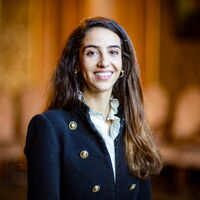
Yasmina Asrarguis (Morocco)
Yasmina Asrarguis is currently a researcher on Middle East geopolitics at Sorbonne-Nouvelle in co-supervision with Princeton University. Her research focuses on the Abraham Accords and the geopolitical dynamics of Israeli-Arab normalization since 2020. Her most recent publications with the Foundation Jean-Jaurès include the book: “Israel-Palestine, Year Zero” in which she analyses the impact of war in Saudi Arabia and Morocco. Prior to this, she was a manager at Richard Attias & Associates New York, a practice focused on advising leaders on the content and orchestration of diplomatic meetings. Her previous professional experience also includes serving as part of the Diplomatic Unit of President Macron, the Executive Office of the UN Secretary-General and more recently the Cabinet of UNESCO’s Director General joined in 2023.
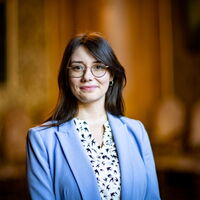
Miranda Loli (Albania)
Miranda Loli is a political scientist, specialising in international relations. Her research explores the role of international organisations; she has a keen interest in how local non-governmental actors make space for themselves in the international arena. She is currently a Max Weber Fellow at the Robert Schuman Centre at the European University Institute in Florence, where she is researching how recovery during a war is contested and negotiated in practice. Miranda completed her PhD in 2023 at the University of Darmstadt with a dissertation titled ‘The Translocality of Anti-Corruption Practices: Encounters between the Local and the International in Kosovo and Ukraine’, exploring the intersection between the global fight against corruption and security. Bridging political geography and IR, she introduces a framework to study interactions between different localities and how they affect global governance. Her research has been supported by grants from the European Cooperation in Science and Technology (COST), the United Nations Office of Drugs and Crime (UNODC) and the International Studies Association (ISA). Prior to her PhD, Miranda studied political science, peace and conflict studies, and sociology at the Ludwig Maximilian University of Munich and the University of Frankfurt. She has designed and taught several courses on the politics of expertise in global governance, international organisations, and the European Union.
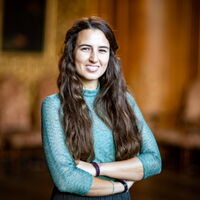
Dr Verónica Relaño Écija (Spain)
Verónica Relaño Écija, holding a PhD in Oceans and Fisheries from the University of British Columbia and mentored by renowned fisheries expert Dr. Daniel Pauly, is deeply committed to marine conservation. Her work focuses on connectivity and addressing socio-ecological challenges arising from the mismanagement of marine resources. Veronica‘s dedication extends beyond academia; she has volunteered for numerous organizations, been actively involved in climate change conferences, and has contributed as a consultant for the World Bank and as a teaching assistant at the University of British Columbia. As the founder and director of the UN Ocean Decade Project "SOS – Somos OceanoS (ocean stories for conservation)," Veronica spearheads initiatives to amplify local voices and foster equitable management in "paper Marine Protected Areas." Her dedication to this cause has been recognized through multiple awards at eco film festivals for her documentaries on Marine Protected Areas, as well as the prestigious Sumaila-Volvo Graduate Prize in Environmental Sustainability. Currently a postdoctoral researcher at the University of Santiago de Compostela, she investigates Ocean Equity and simultaneously serves as the Oceans Program Director at NGO Onewater.

Sabine Kerssens (Netherlands)
Sabine Kerssens is a Dutch systems engineer, working for Techleap.nl to accelerate impact by startups. In the past, she has been researching and promoting Dutch startups in getting traction and writing their internationalization strategy. In 2020 she won the SME Week essay competition in her call for one Single Startup Scaleup Market. She also has experience in data analysis, research and as an innovator. She holds an M.Sc. in Innovation Technology from ETH Zurich and an M.Sc. in Engineering and Policy Analysis from TU Delft. This year she will research and support DeepTech startups in and for a changing world with the Charlemagne Prize Academy.
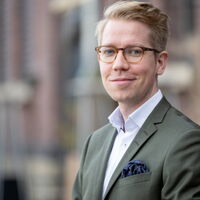
Christoph Erber (Germany)
Christoph Erber is Chief of Staff to the Director at the German Council on Foreign Relations (DGAP). During his year as a Charlemagne Prize Fellow, he will research prospects of energy diplomacy and international partnerships in the scope of Europe‘s quest towards strategic sovereignty. He previously worked at the Munich Security Conference (MSC), most recently as Senior Program Manager responsible for the conceptual and content coordination of several MSC events and publication formats, where he specialized in topics related to European foreign, security and energy policy as well as transatlantic relations. Christoph completed his master‘s degree in international relations and international economics at the School of Advanced International Studies (SAIS) at Johns Hopkins University in Bologna and Washington, DC. During his trilingual bachelor‘s degree in Economics and Political Science at the Free University of Bolzano, he also studied at Bilkent University in Ankara and the University of Washington in Seattle.
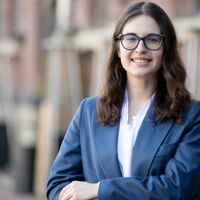
Lisa Becker (Germany)
Lisa Becker is currently completing a pre-doctoral research training program at the Humboldt University in Berlin. She obtained an undergraduate and graduate degree in International Security from Sciences Po Paris with study stays abroad in the United States and Russia. She previously gained professional experience in national and international institutions, as well as strategic and crisis management consulting. Within the framework of the Charlemagne Prize Academy fellowship, she will be working on the role of space on Europe‘s path to strategic sovereignty and explore the EU‘s role, opportunities, and risks in the outer space.
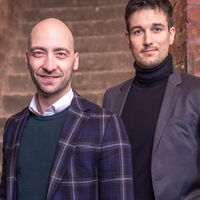
Vincent-Immanuel Herr & Martin Speer (Germany)
Vincent-Immanuel Herr and Martin Speer are an author and activist team from Berlin. Founded in 2012, Herr, a historian/sociologist, and Speer, an economist, are dedicated to a range of social and political issues, publishing articles and initiating public campaigns. Herr and Speer gained particular prominence with their Free Interrail initiative, though flagship campaigns also included their German ambassadorship of the UN HeForShe campaign and the #EuropeLovesUK appeal in the wake of the Brexit referendum, which was even shared by J.K. Rowling.
In the course of the Fellowship, they published articles on the European discourse on the future in the newspaper Die Zeit and in the Washington Post. In summer 2021, they published their latest book "Europe For Future. 95 Theses to Save Europe - What Must Happen Now" which presents proposals for the further development of the European Union.
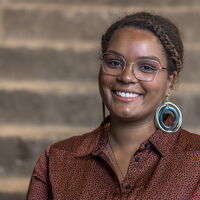
Miriam Mona Mukalazi (Germany)
Miriam is a PhD researcher studying peace and security policies. During her Fellowship, she conducted research at the Institute for Women, Peace and Security at Georgetown University in Washington D.C. as well as at the Institute for Peace and Security Studies at Addis Ababa University. Miriam has worked for UN Women Germany, the Centre for Feminist Foreign Policy, as well as for the World Bank Group. At the moment, Miriam works as a research consultant for the EU commission analysing the Team Europe Initiative. In 2020, Miriam delivered a statement about Germany’s policies regarding Women, Peace and Security in front of the Committee of Foreign Affairs of the German Bundestag. As an expert, Miriam also analyses global politics from a feminist perspective in German media such as Deutschlandfunk Nova, WDR5, Funk or ZeitCampus. She serves as a board member for several organisations such as the United Nations Association of Germany or the international NGO Women Engage for a Common Future.
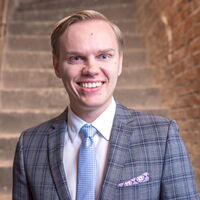
Justinas Lingevičius (Lithuania)
Justinas Lingevicius is a PhD candidate at the Institute of International Relations at Vilnius University and also works as a Senior Officer at the Dutch Embassy. His professional experience included various public institutions and NGOs. During the Fellowship, he decided to focus on emerging technologies and their role in international affairs, while concentrating on AI and on how related risks are constructed in the context of global competition.
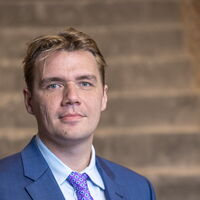
Dr. Max Jacobs (Germany)
Max Jacobs is a policy advisor and lawyer from Saarland, Germany. His work focuses on the intersection between law, economics and politics. During his Charlemagne Prize Fellowship and as a Fellow at Harvard University, he was focusing on the question of how to advocate environmental protection through framing methods. He studied law and finance at Oxford, Warwick, Lille and Saarbruecken and wrote a book about the European Emission Trading Scheme. Prior he worked as a business attorney and clerked for Justice Mueller at the German Federal Constitutional Court. Max was a Fulbright Scholar at Harvard and a DAAD Graduate Scholar at Oxford.
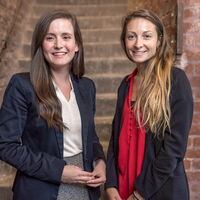
Nadina Iacob (Romania) & Dr Alexandra Campmas (France)
Nadina Iacob and Dr Alexandra Campmas are both working as Associate Researchers at the Center for European Policy Studies (CEPS) and as Consultants to The World Bank. Nadina holds a Master of Public Policy degree from the Hertie School of Governance (Berlin) and is specialised in methods for policy analysis, EU governance and economic policies. She gained experience with working in national and European institutions, tracking budgetary and financial legislative developments in the Parliament of Romania and gaining insights into EU legislative procedures at the European Parliament Information Office, Bucharest. Alexandra holds a PhD in economics and finance from the University of Bordeaux (France), specialising on the effects of monetary and macroprudential policies on the behaviour of European banks. With her academic and consultancy background and her extensive knowledge of the European Central Bank‘s actions, she and Nadina jointly explored the implications of adopting a digital euro to improve the EU‘s resilience and the well-being of its citizens as part of the Fellowship.
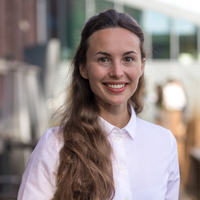
Dr Hannah Pool (Germany)
Dr Hannah Pool is a postdoctoral researcher at the Max-Planck-Institute for the Study of Societies. Her research focuses on borders, bordering processes, and migration trajectories. Her previous acities included field research in Iran, Turkey, Greece, Bosnia and Germany. During her Fellowship, she focussed on solidarity through movement and mobility. She has been a visiting scholar at COMPAS Oxford University, the Berlin Center for Social Sciences (WZB), and Columbia University. She studied international relations in St Andrews, Tehran, and Dresden. Her dissertation and research results have attracted a large number of distinctions.
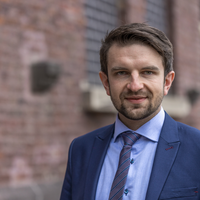
Dr Iulian Romanyshyn (Ukraine)
Dr Iulian Romanyshyn is a current fellow at the Academy of International Affairs NRW and a senior fellow at the Center for Advanced Security, Strategic and Integration Studies (CASSIS) at the University of Bonn. He previously held research and teaching positions at New York University, Maastricht University, Free University of Brussels and European University Institute and the NATO Defense College. In the past, he also worked in the Policy Department of DG External Policies at the European Parliament and in the German Institute for International and Security Affairs (SWP). Iulian’s research interests include transatlantic security relations, EU security and defence policy and EU-Ukraine relations. Iulian holds a PhD in political science from the IMT School for Advanced Studies Lucca, master’s and bachelor’s degrees from Maastricht University, College of Europe (Bruges), and the National University of Kyiv-Mohyla Academy.
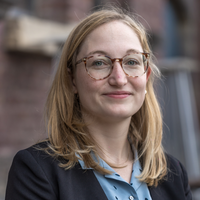
Sophie Pornschlegel (France/Germany)
Sophie Pornschlegel works as Director of Studies with the Brussels think-tank Europe Jacques Delors. She teaches a course on European integration at Sciences Po Paris and is the author of the book “Am Ende der gewohnten Ordnung: Warum wir Macht neu denken müssen” (Droemer, 2023). She previously worked as Senior Policy Analyst at the European Policy Centre in Brussels, where her research focused on EU institutions, democracy, Franco-German relations, and rule of law. Sophie studied political science and European affairs at Sciences Po Paris, King’s College London and the London School of Economics (LSE). She also regularly comments and is invited to talk on broadcasts, such as for BBC, Reuters TV, Al Jazeera, Deutsche Welle and national outlets, while her op-eds are published in several media. During her Fellowship she researched EU solidarity during the COVID-19 crisis.
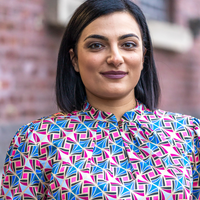
Dr Photini Vrikki (Cyprus)
Dr Photini Vrikki is Director at the Centre for Digital Culture at King‘s College London. Her research and teaching focuses on the links between social and digital inequalities; power and data; and algorithmic cultural developments. During her Fellowship, she explored the deployment of solidarity governance mechanisms and the role of data literacy in the European data economy. Previously, she was a Research Fellow in Digital Humanities at Brunel University London and has been co-building the research and impact profile of Media What, an NGO committed to promoting media education through participatory media production activities. She holds a PhD in Digital Culture and Society from King’s College London, an M.A in English and a B.A in English Literature.
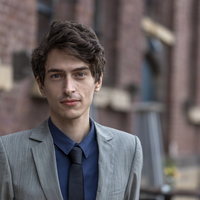
Radu George Dumitrescu (Romania)
Radu Dumitrescu is a PHD Candidate at the University of Bucharest. He contributes to the publication of various magazines, such as the web magazine of the Young European Federalists and The Political Science Club, and was one of the youngest nominees for the European Press Prize 2019. With his background in comparative politics, he also gained experience in the public sector, e.g. in the presidential office of the 2020 Charlemagne Prize laureate Klaus Iohannis. During the Fellowship, he investigated the opportunities of shorter supply chains for the competitiveness of the EU, explicitly taking into account Eastern European locations. The aim was to address possibilities for crisis-proof trade mechanisms and to demonstrate the advantages of diversified production within the European community of values, away from non-transparent or undemocratic systems.
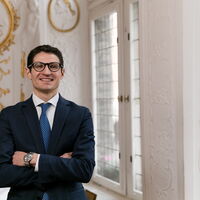
Prof. Dr Federico Fabbrini (Italy)
Federico Fabbrini is Full Professor of European Law at the School of Law & Government of Dublin City University (DCU), where he is the Director of the Law Research Centre. He is also the founding director of the DCU Brexit Institute, where he is the Principal Investigator of the EU-funded Jean Monnet Network BRIDGE and the EU-funded Jean Monnet Centre of Excellence REBUILD. Federico Fabbrini holds a B.A. in European & Transnational Legal Studies from the University of Trento, a J.D. in International Law from the University of Bologna and Ph.D. in Law from the European University Institute. Before joining DCU, he was Associate Professor of European & International Law at iCourts (the Center of Excellence for International Courts) at the Faculty of Law of the University of Copenhagen, in Denmark, and Assistant Professor of European & Comparative Constitutional Law at Tilburg Law School, in the Netherlands,where he was awarded tenure. His research focuses on EU law and spans from the field of fundamental rights to Economic and Monetary Union, up to Brexit and the future of Europe. During the Fellowship, he focused on the conceptualisation phase of the Conference on the Future of Europe and worked out proposals and potential for possible institutional reforms within the EU.
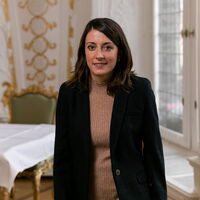
Dr María Victoria-Mas (Spain)
María Victoria-Mas is a Lecturer and Researcher focused on Disinformation and News Consumption, News Media Management and Political Communication. She is an Assistant Professor at the Universidad CEU Abat Oliba (UAO, Barcelona, Spain). She also serves as a Research Fellow of the Red Leonardo, and as a Research Associate at the Universidad de Navarra, where she works on a project about online native media in Spain. For the past 12 years, she served as a Lecturer and Research Associate at the Universidad Internacional de la Rioja (UNIR, Spain) and at the Universitat Internacional de Catalunya (UIC, Spain). Victoria-Mas holds a bachelor’s degree in Journalism and in Humanities and a master’s degree in Social Science Research Methods from the Universitat Internacional de Catalunya. During her PhD studies, she worked as a reporter and as coordinator of the Readers’ editorial Council for the Catalan newspaper La Vanguardia. During her Fellowship, she focused on fake news in the coverage of the covid-19 pandemic and influences and effects of varying news consumption on trust in news media in the population and in European comparison.
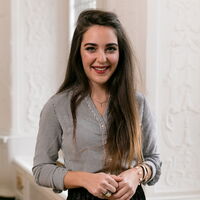
Georgia Petropoulou (Greece)
Georgia Petropoulou currently works as a Project Specialist for the IT and business consulting services firm CGI Nederland. Previously, she gained experience at the Centre for European Security Studies in Groningen and the Ministry of Foreign Affairs in Greece. Her research interests focus on connectivity in the social and security policy realms. During her fellowship, she therefore developed a proposal for a European connectivity strategy in view of a potential EU enlargement in the Western Balkans. Georgia holds a Bachelor in International and European Studies from the University of Macedonia and a Master in International Relations and International Security from the Rijksuniversiteit Groningen.
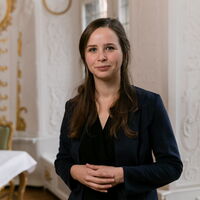
Dr Marie Walter-Franke (France/Germany)
Marie Walter-Franke works as research fellow in the Migration Program at the German Council on Foreign Relations (DGAP), focussing on the external dimension of German and EU migration policies. Previously, she was affiliate policy fellow at the Jacques Delors Centre where she worked on EU migration and asylum policy. She wrote about the harmonization of asylum processing at the EU level, cooperation with countries of transit, and human rights issues. During her Fellowship, she developed reform proposals for the EU asylum system. Prior to her doctoral studies, she worked at the European Commission, International Labour Organisation (ILO), and German Institute for International and Security Affairs (SWP). She is currently writing her PhD thesis at Freie Universität Berlin in the program “Human Rights Under Pressure – Ethics, Law, and Politics,” a cooperation with the Hebrew University of Jerusalem where she was a visiting research fellow in 2016. She holds a master’s degree in European studies from Sciences Po Paris and in Politics and Government in the EU from the London School of Economics.

